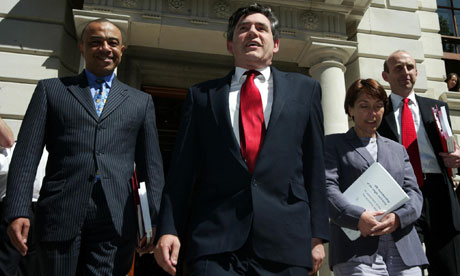The Hindu 18/06/13
If any unmarried couple of the right legal age “indulge in sexual gratification,” this will be considered a valid marriage and they could be termed “husband and wife,” the Madras High Court has ruled in a judgment that gives a new twist to the concept of premarital sex.
If any unmarried couple of the right legal age “indulge in sexual gratification,” this will be considered a valid marriage and they could be termed “husband and wife,” the Madras High Court has ruled in a judgment that gives a new twist to the concept of premarital sex.
The court said that if a bachelor has completed 21 years of age and an unmarried woman 18 years, they have acquired the freedom of choice guaranteed by the Constitution. “Consequently, if any couple choose to consummate their sexual cravings, then that act becomes a total commitment with adherence to all consequences that may follow, except on certain exceptional considerations.”
The court said marriage formalities as per various religious customs such as the tying of a mangalsutra, the exchange of garlands and rings or the registering of a marriage were only to comply with religious customs for the satisfaction of society.
The court further said if necessary either party to a relationship could approach a Family Court for a declaration of marital status by supplying documentary proof for a sexual relationship. Once such a declaration was obtained, a woman could establish herself as the man’s wife in government records. “Legal rights applicable to normal wedded couples will also be applicable to couples who have had sexual relationships which are established."
The court also said if after having a sexual relationship, the couple decided to separate due to difference of opinion, the ‘husband’ could not marry without getting a decree of divorce from the ‘wife’.
Justice C.S. Karnan passed the order on Monday while modifying an April 2006 judgment of a Coimbatore family court in a maintenance case involving a couple. The lower court had ordered the man to pay monthly maintenance of Rs. 500 to the couple’s two children and Rs. 1000 as litigation expenses. The lower court observed that the woman’s wedding with the man had not been proved by documentary evidence. Hence, she was not entitled to maintenance.
In her appeal to the High Court, the woman’s counsel contended that she was legally married and had two children in wedlock.
Justice Karnan said he was of the view that a valid marriage did not necessarily mean that all the customary rights pertaining to the married couple are to be followed and subsequently solemnised. In the present case, the woman and her husband had no encumbrance or other disqualification for solemnising their wedding as per their customs. For solemnising a wedding, legal aspects should be placed on a higher scale than the customary aspects. In this case, the man had signed in the ‘live birth report’ of his second child and given his consent for a Caesarean section for its birth. As such, he had officially admitted that she was his wife.
“Without legal encumbrance or third party interference or without affecting third party rights, both the petitioner and the respondent lived together as spouses and begot two children.” Therefore, the question of an illegitimate relationship did not arise. Wedding solemnisation was only a customary right, but not a mandatory one. Hence, the judge said, he was treating the couple as spouses in normal life.
“It is not disputed that the petitioner has been a spinster before she gave birth and that the respondent was a bachelor before developing sexual relationship with the petitioner. Both of them led their marital life under the same shelter and begot two children. Therefore, the petitioner’s rank has been elevated as the `wife’ of the respondent and likewise, the respondent’s rank has been elevated as the `husband’ of the petitioner. Therefore, the children born to them are legitimate children and the petitioner is the legitimate wife of the respondent.”
The judge directed the woman’s husband to pay her a monthly maintenance of Rs.500 from the date of petition, i.e. from September 2000. The arrears of maintenance up to May this year should be paid within a period of three months.
-----------
Times of India 20 June 2013
CHENNAI: Two days after his sensationaljudgment on sexual relations between adults,Justice C S Karnan has further elaborated on the order which accords the status of marriage to all such relationships, and said his ruling would help maintain the "cultural integrity of India" and "protect the welfare of women".
On Wednesday, issuing an unusual addendum in reaction to the heated debates it has generated in social media and other platforms, he said: "This court's order does not in any way run against any religion and is not intended to wound any Indian. The order had not in any way degraded the system of marriage performed as per the various religious and customs and rites among the various communities."
Reiterating his conclusion that sexual ties between a man and woman of marriageable age would raise the affair to the status of a marital union, Justice Karnan said: "If a bachelor aged 21 years or above and a spinster aged 18 years or above had premarital sex with intention to marry and subsequent to this the man deserts the woman, the victim woman can approach a civil forum for remedy after producing necessary substantial evidence to grant her social status as wife. This remedy is not only for the purpose of giving relief to the victim woman but also to maintain the cultural integrity of India."
Cautioning critics of the judgment, Justice Karnan said: "Law permits the affected woman to initiate criminal proceedings against her paramour for cheating her and deserting her after making a promise of marriage, but there is no provision to approach the civil forum for her remedy. The high court is the apex court of this state and constitutional authority. Therefore, this court has given the legal relief to the affected woman. Without fully understanding the court's judgment, adverse comments shall not be passed."
But legal experts have questioned the judge's decision to further elaborate on the order and go beyond the scope of the subject to address issues relating to culture. While the order has been broadly accepted to be in keeping with Supreme Court judgments on live-in relationships and maintenance, a senior sitting judge of the same high court said Wednesday's addition ought not to have referred to the issue of 'cultural integrity' and the welfare of women. "The issue pertains to maintenance, and to justify the award he had discussed sexual interaction and status of marriage. But linking it to a larger and intangible issue of culture is unwarranted," he said. There is also the view that such a view of the man-woman relation was liable to be misinterpreted in the subordinate courts.
-----------
Times of India 20 June 2013
CHENNAI: Two days after his sensationaljudgment on sexual relations between adults,Justice C S Karnan has further elaborated on the order which accords the status of marriage to all such relationships, and said his ruling would help maintain the "cultural integrity of India" and "protect the welfare of women".
On Wednesday, issuing an unusual addendum in reaction to the heated debates it has generated in social media and other platforms, he said: "This court's order does not in any way run against any religion and is not intended to wound any Indian. The order had not in any way degraded the system of marriage performed as per the various religious and customs and rites among the various communities."
Reiterating his conclusion that sexual ties between a man and woman of marriageable age would raise the affair to the status of a marital union, Justice Karnan said: "If a bachelor aged 21 years or above and a spinster aged 18 years or above had premarital sex with intention to marry and subsequent to this the man deserts the woman, the victim woman can approach a civil forum for remedy after producing necessary substantial evidence to grant her social status as wife. This remedy is not only for the purpose of giving relief to the victim woman but also to maintain the cultural integrity of India."
Cautioning critics of the judgment, Justice Karnan said: "Law permits the affected woman to initiate criminal proceedings against her paramour for cheating her and deserting her after making a promise of marriage, but there is no provision to approach the civil forum for her remedy. The high court is the apex court of this state and constitutional authority. Therefore, this court has given the legal relief to the affected woman. Without fully understanding the court's judgment, adverse comments shall not be passed."
But legal experts have questioned the judge's decision to further elaborate on the order and go beyond the scope of the subject to address issues relating to culture. While the order has been broadly accepted to be in keeping with Supreme Court judgments on live-in relationships and maintenance, a senior sitting judge of the same high court said Wednesday's addition ought not to have referred to the issue of 'cultural integrity' and the welfare of women. "The issue pertains to maintenance, and to justify the award he had discussed sexual interaction and status of marriage. But linking it to a larger and intangible issue of culture is unwarranted," he said. There is also the view that such a view of the man-woman relation was liable to be misinterpreted in the subordinate courts.




